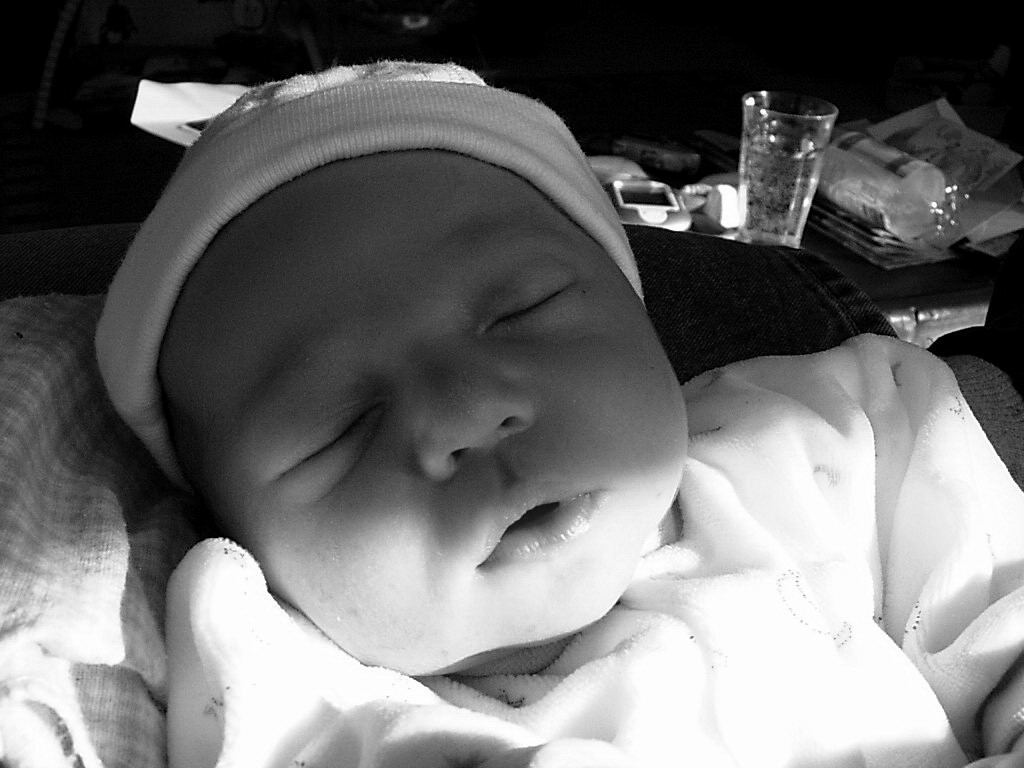The first thing I learned on my very first rotation was to never wake a sleeping patient. The first thing I learned on my most recent rotation was to never be afraid to wake a sleeping patient. With two completely opposite opinions on the same practice, the former from a psychiatric service and the latter from internal medicine, I started to wonder if there could be some sort of happy medium, rather than a one-size-fits-all rule about sleep in the hospital setting. As medical students, we all know the importance of a good night’s sleep – even though it’s a luxury our schedules so rarely afford us. How is it, then, that while we get trained on numerous medications and interventions, we often overlook sleep as one of the most crucial aspects of health?
Throughout my time on inpatient medicine over the past several months, I have noticed a certain asymmetry to the workday. Mornings are usually hectic and full of activity. We get to the hospital early, read up on our patients, examine them, and then go through morning rounds as a group. By the time lunch is over, the day takes on a more leisurely pace as we finish our notes, await new admissions, and tackle any breakthrough issues with our patients. Our patients are often subjected to the “morning shuffle” which means that the medical team often causes sleep disturbance in the name of obtaining an early morning physical exam, sometimes for our own convenience. I think of this as an iatrogenic sleep disruption, meaning that it’s a problem caused by the medical team, not by the patient’s disease process.
In academic hospitals, many of our patients get examined multiple times by attending, residents, interns, and, last but not least, the lowly medical student. Often, these examinations are taking place early in the morning when some of our patients would barely be taking their first sips of coffee at home, let alone being poked and prodded by strangers. The multiple rounds of examinations and questioning are often in addition to being woken several times at night by the nursing staff. A 2013 study in JAMA Internal Medicine found that waking patients from sleep unnecessarily actually increased the patient’s odds of returning to the hospital, increasing what is sometimes referred to as the “bounce back” rate.[1] This study hypothesizes that the Modified Early Warning Score (MEWS) can be used to assess which patients will still receive quality care with fewer interventions. Another perk of respecting hospitalized patients’ sleep was identified by a 2010 study in the Journal of Hospital Medicine, which found that fewer sleep interruptions were linked to a lower rate of sedative use by patients.[2] Furthermore, a 2006 study identifies sleep disturbances as being a leading contributing factor to two of the most common hospital complications: falls and delirium.[3] As professionals in the medical field, we are relatively acclimated to performing sophisticated tasks early in the morning, but we have to realize that many of our patients have completely different schedules and may not be used to rising with the sun. While I feel relieved to know I’m not the only one who’s puzzled over the how little regard the medical profession has for sleep in the inpatient setting, there’s obviously still more that needs to be done in recognizing iatrogenic sleep disruption as a true health detriment.
In an effort to recognize sleep as crucial to the healing process, I have, at times, chosen to defer early morning physical exams on my patients until after morning rounds. For me to feel comfortable deferring an exam until later in the day, a patient has to meet three criteria: I must be familiar with them (i.e., already examined them during the admission), they must have stable vital signs, and I must feel reasonably sure that physical exam findings won’t grossly alter my plan of care. Although some attending physicians have been mildly irritated that I didn’t initiate a patient examination before our morning rounds (one of them saying, “The hospital is not for sleeping.”), many have actually responded favorably when I explained that I chose not to wake our patients. As a bonus, prioritizing the delivery of care amongst several patients on a busy service acts as another way for me to hone my clinical judgment skills. For patients for whom an early morning exam is unavoidable, I make it a priority to revisit them in the afternoon when they are more alert and able to participate in discussions about their care. After all, of all the sacrifices we ask our patients to make in the name of health, sleep no more shouldn’t be one of them.
References:
[1] A Prospective Study of Nighttime Vital Sign Monitoring Frequency and Risk of Clinical Deterioration: https://www.ncbi.nlm.nih.gov/pubmed/23817602
[2] Decrease in as-needed sedative use by limiting nighttime sleep disruptions from hospital staff: http://www.journalofhospitalmedicine.com/jhospmed/article/127000/sleep-disruptions-and-sedative-use
[3] Sleep Disorders and Sleep Deprivation: An Unmet Public Health Problem: http://docs.wind-watch.org/Sleep-Disorders-Sleep-Deprivation.pdf
Photo credit:


